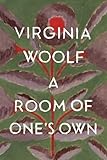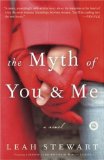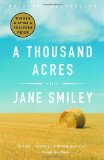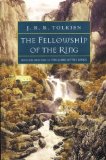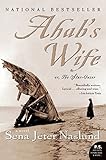 From one brief mention of Ahab’s wife in Moby-Dick, in the manner that God fashioned Eve from Adam’s rib, Sena Jeter Naslund has fashioned Ahab’s Wife:
From one brief mention of Ahab’s wife in Moby-Dick, in the manner that God fashioned Eve from Adam’s rib, Sena Jeter Naslund has fashioned Ahab’s Wife:
[W]hen I think of all this; only half-suspected, not so keenly known to me before—and how for forty years I have fed upon dry salted fare—fit emblem of the dry nourishment of my soul!—when the poorest landsman has had fresh fruit to his daily hand, and broken the world’s fresh bread to my mouldy crusts—away, whole oceans away, from that young girl-wife I wedded past fifty, and sailed for Cape Horn the next day, leaving but one dent in my marriage pillow—wife? wife?—rather a widow with her husband alive? Aye, I widowed that poor girl when I married her, Starbuck; and then, the madness, the frenzy, the boiling blood and the smoking brow, with which, for a thousand lowerings old Ahab has furiously, foamingly chased his prey—more a demon than a man!… I see my wife and child in thine eye (Moby-Dick, Chapter 132 “The Symphony”).
And what sort of a woman would be a match for Captain Ahab? Naslund’s Una Spenser is Ahab’s feminine counterpart — where Captain Ahab is consumed by vengeance, Una learns forgiveness for all; Ahab is destroyed by his hate for the white whale, while Una survives and prospers because of her love. This, then, is a woman to marry Ahab.
You do not need to read Melville’s Moby-Dick in order to appreciate Ahab’s Wife, but I would strongly recommend that you do so, for your appreciation will be much deeper. Una begins her story in medias res, as memorably as Melville begins Moby-Dick: “Captain Ahab was neither my first husband nor my last.” Una is pregnant and decides to travel to Kentucky to have her child. She recounts the two most horrible moments of her life, then takes us into her past when she was twelve and first moved to the Lighthouse home she shared with her Aunt Agatha, Uncle Torchy, and cousin Frannie.
At the age of sixteen, Una runs away to sea as a “cabin boy,” and encounters horrors as her ship is destroyed by a whale and she is forced to survive on an open boat in the water. She endures a disastrous marriage and is forced to use her sewing needle to support herself. She feels immediate attraction to the elemental Ahab, and the two are happily married until Ahab encounters Moby-Dick in the Sea of Japan.
Una crosses paths with many luminaries of her age: astronomer Maria Mitchell, writer and transcendentalist Margaret Fuller, abolitionist Frederick Douglass, and writers Nathaniel Hawthorne and Ralph Waldo Emerson. Naslund’s many literary allusions, from The Odyssey, to Shakespeare, to The Faerie Queene, and many more will delight book lovers.
Naslund has a gift for language, and she breathes life into Una — I wished as I read that I could have really known her! — and makes her setting so real, I felt I was there. I have read some enjoyable books, but this might be one of only a handful that transcend other literary fiction to such a degree that I feel sure it will have a place in the canon of Literature with a capital L one day. And Una Spenser is a remarkable character and proper soulmate for Ahab.
Read other reviews:
- Feminista! Vol. 3, No. 8: Ahab’s Wife
- CNN.com: “Author says ‘Ahab’s Wife’ is an ‘epic story of an American woman'”
[tags]Ahab’s Wife, Sena Jeter Naslund, Moby-Dick, Herman Melville, Una Spenser, Captain Ahab[/tags]


